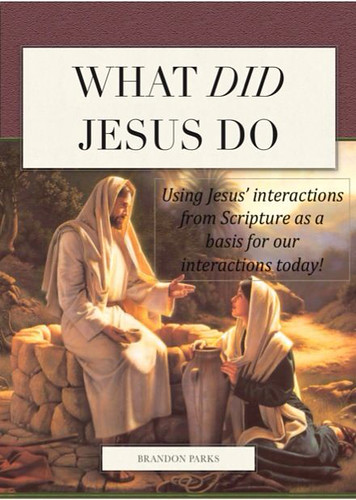 This week I turn thirty and I thought it would be fun to look at the changes in my own belief system and the influences that have brought about such significant changes. I hope this can be educational to show that one's belief system should not grow stagnant and remain the same throughout a person's life, but that as a person matures so should their faith.
This week I turn thirty and I thought it would be fun to look at the changes in my own belief system and the influences that have brought about such significant changes. I hope this can be educational to show that one's belief system should not grow stagnant and remain the same throughout a person's life, but that as a person matures so should their faith.My first major crisis of faith came when I was a senior in high school. I was raised in a religious bubble where I just assumed that what I was taught was right and was never exposed to anything beyond my Christianity. Imagine my surprise when searching the internet one day I came across a website that "proved" the bible wrong. I felt like the earth was crumbling around me and I didn't know what to believe; my faith had never been challenged before. My bible teacher in high school (I went to a conservative Christian high school) introduced me to Josh McDowell, thus beginning a major shift in my belief system where I fell in love with Christian apologetics (defending one's faith) and desired to become something of a theologian.
During this period in my life, while in my early 20s, I was an outspoken fundamentalist college student, defending such doctrines as the trinity, the inerrancy of the bible, and the salvation only of Protestant Christians. When someone supported a belief I felt was unbiblical, I jumped on them with such an attack that I'd make Pat Robertson proud. I was outspoken against gay marriage, against abortion, and against any religion that was not remotely close to looking like orthodox Christianity. Then would come the most significant moment in my life.
In 2009 I became a hospice chaplain and would meet my mentor Dr. Lynn Euzenas. Both have had the biggest impact in my life. Ministering directly with the sick and dying has made me change my priorities in life. For the first time in my life I was in a position where my heart would be impacted even more so than my head. As I have worked with those who are sick and dying I have realized that many of the arguments for particular doctrines do not matter because what is important to God is not right teaching but right love. I Corinthians 13 teaches that love is the most important attribute of a Christian, and I finally understood what that meant. What is right doctrine without love of one's fellow human being? What kind of Christian are we if we would rather criticize a gay man for his orientation than love him for being a child of God? This is what I learned from my mentor and this is what I have learned from my ministry with those who are in the greatest need of love, those who are sick and hurting and fearful.
I no longer find it necessary to focus on sin, mine or another's. I still believe in the trinity but don't feel that God needs much defending. I think he's got a thick skin and can handle things himself. I no longer believe in the inerrancy of the bible because, frankly, it talks about the sun rotating around the earth which is scientifically incorrect. I no longer believe homosexuality is a sin and instead feel it important to show my love to my gay brothers and sisters in Christ because they are as much children of God as I am. I still believe abortion is wrong, but I will love those who have had and who have performed abortions as much as I love anyone else, because that is what Jesus says is right.
What I hope we can learn from this is that by sticking with a particular belief for the sake of being right we end up wrong in the end. By holding to a belief for one's entire life a person is so arrogant as to believe that he cannot possibly be wrong. We cannot grow stagnant in our beliefs but must constantly monitor for outmoded beliefs that especially hold us back from loving anyone. Our guideline for tossing out a doctrine should be this question: "is this doctrine preventing me from showing love to my fellow human being." If it is the case that a doctrine is causing love to be held back, we must toss it out and forget it, because it is not what Jesus would want us to believe. Let us therefore be mature believers and love one another as Jesus has loved us.
Blessings,
-Brandon
P.S. Don't forget to stop by amazon.com and purchase my book What Did Jesus Do for your kindle. It is still free for the next four days.









